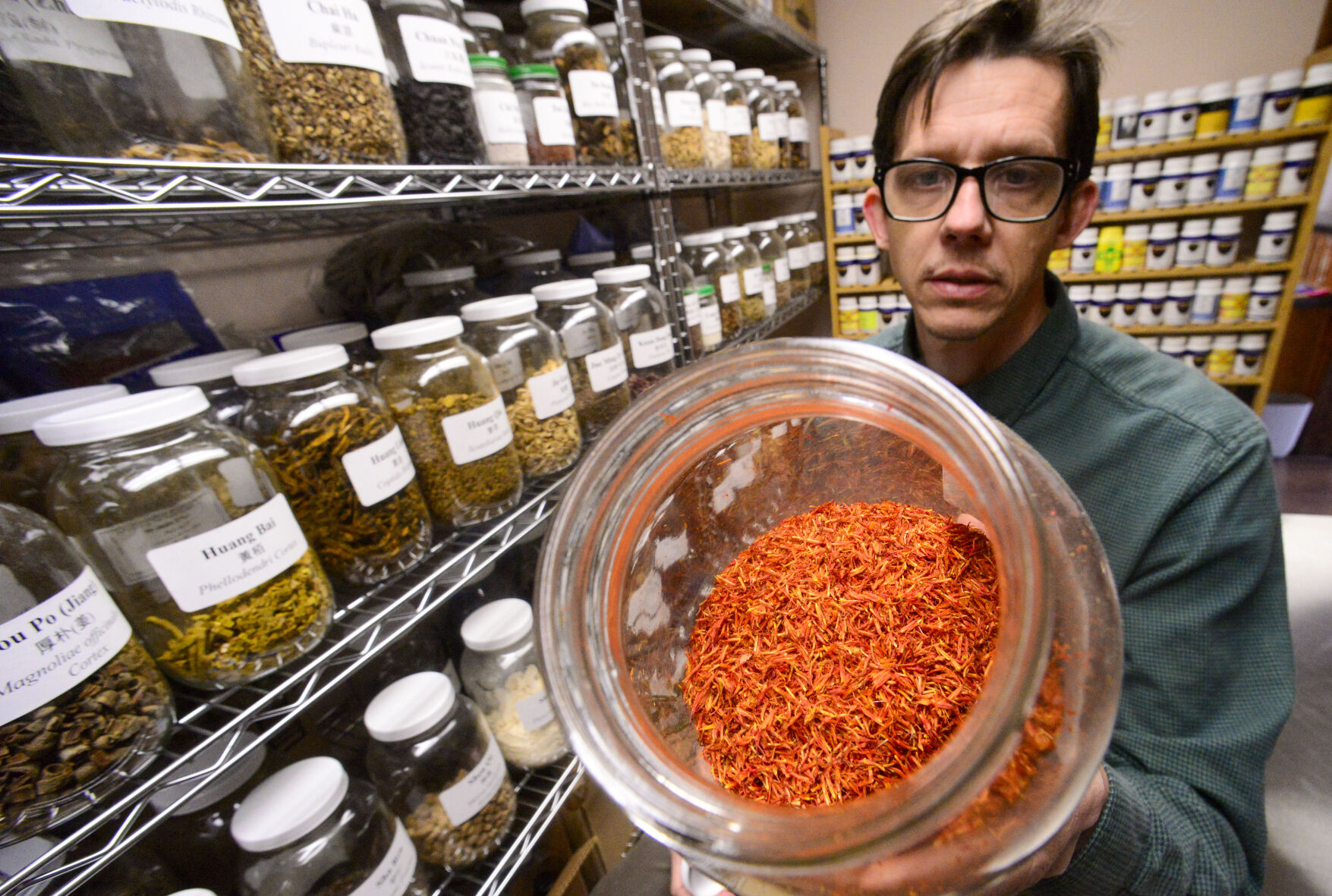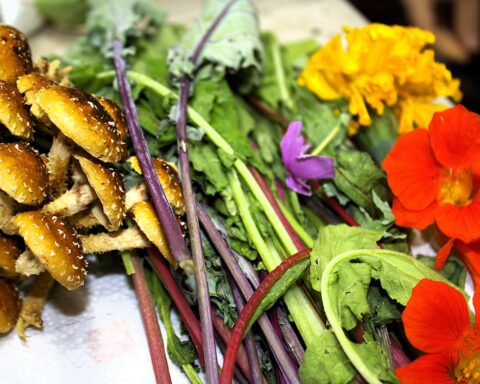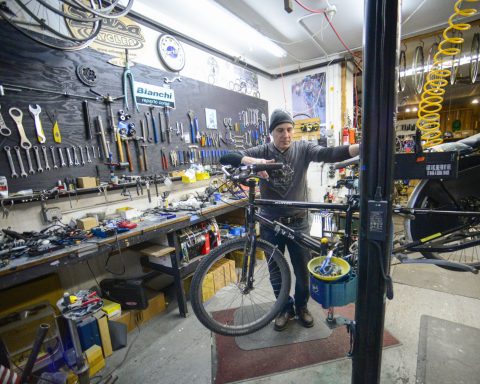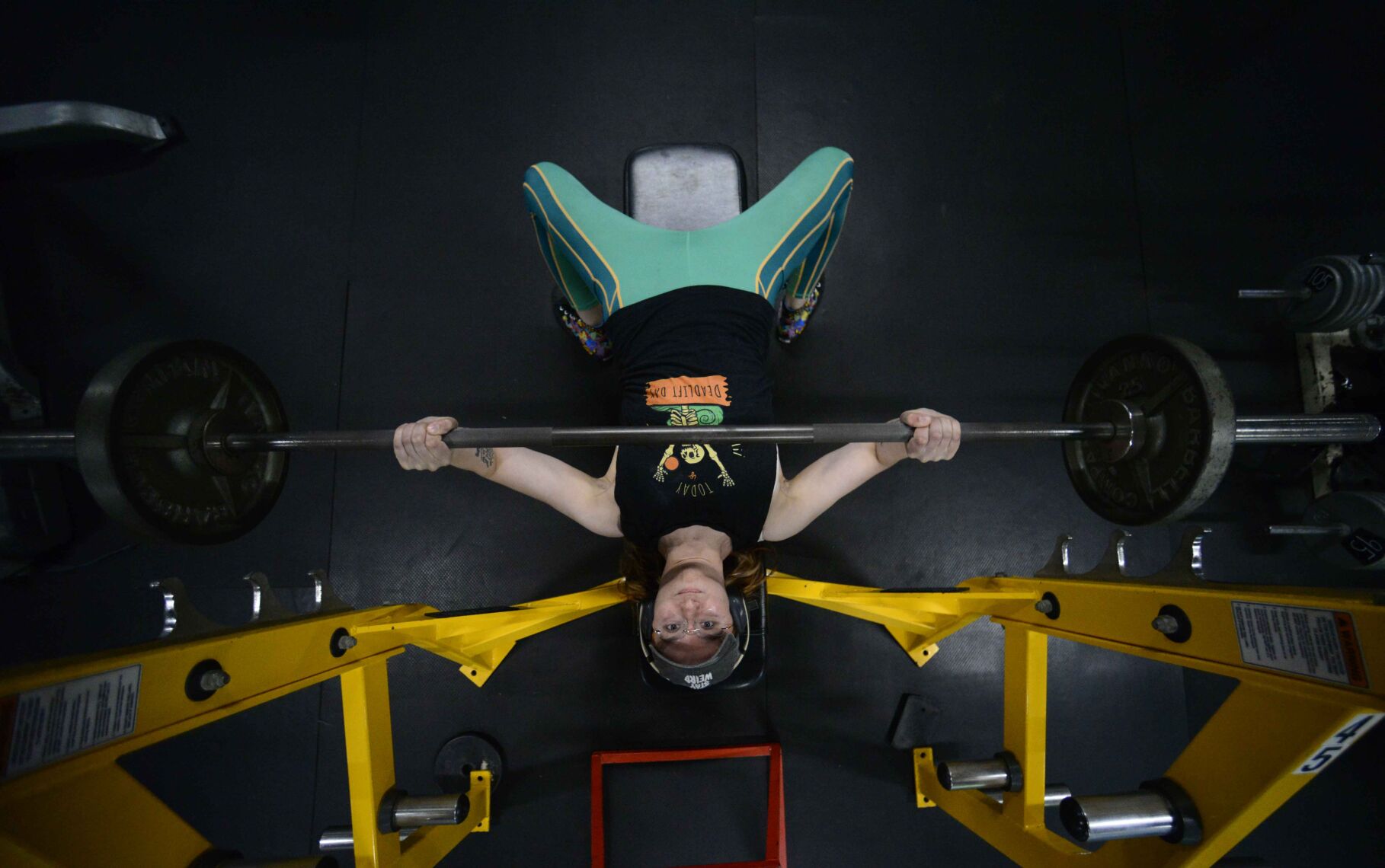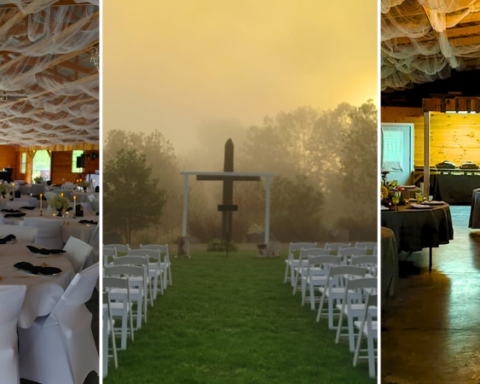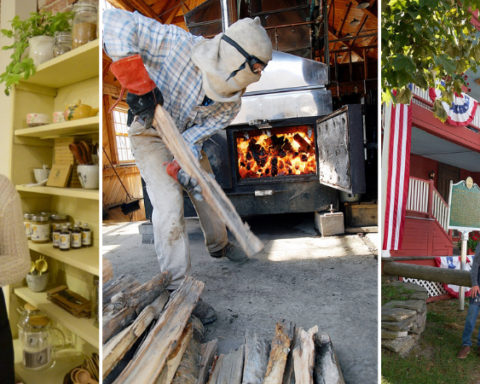By Chris Mays, Vermont Country Magazine.
BRATTLEBORO — Confluence Acupuncture is the next logical step for owner Stefan Grace, who has been a licensed acupuncturist for more than a decade and has practiced Chinese medicine for more than 15 years.
“I’ve worked in many different clinics,” he said, “so this is my first solo venture running my own clinic.”
Grace opened Confluence Acupuncture on Technology Road Drive in Brattleboro about a year ago. So far, he said, it’s going well.
Previously, Grace rented a room at a naturopathic clinic on Western Avenue in Brattleboro for about five years. He said the move allowed him to expand his business.
Looking around, Grace noticed a number of acupuncturists operating in Brattleboro. But nobody was running what he considers a public-facing clinic with signs, advertising and multiple treatment rooms.
“I felt like there was a place for it…I think that there have been those kinds of clinics in Brattleboro before but not in the six years that I had been living here.”
Stefan Grace
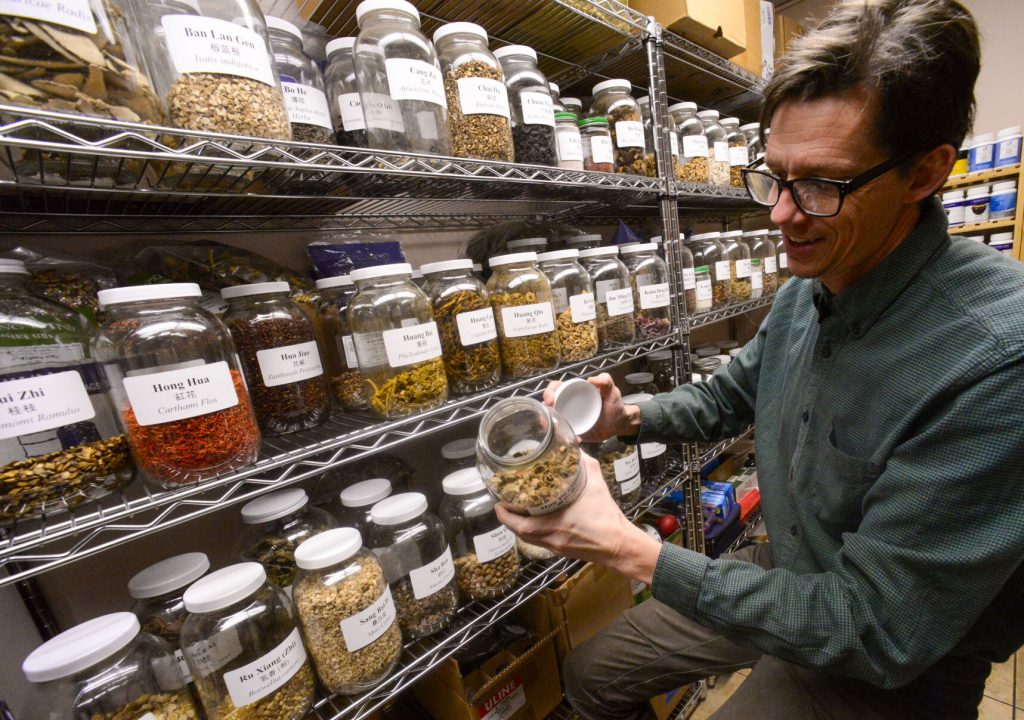
Grace estimates 95 percent of the people he sees are experiencing some kind of pain — sometimes acute, sometimes chronic. That pain involves backs, necks, shoulders, knees and feet. Sometimes, it’s related to arthritis or rheumatoid arthritis. Acupuncture also is used to treat gastrointestinal, gynaecological and fertility issues, post-traumatic stress disorder, musculoskeletal injuries and internal disorders.
With an aging population, Grace stressed the importance of people staying as mobile as possible as late into their lives as they can.
“This has become a big, big part of my clientele,” he said.
Through martial arts, Grace became involved in learning about Chinese medicine, herbal medicine and manual therapies. After getting hit by a car and breaking his hand, he could no longer work in carpentry for any extended period of time.
As a result, Grace started to receive a lot of acupuncture.
“I was so impressed with how effective it was in treating really acute injuries like that,” he said.
With plenty of time on his hands, Grace decided he should give acupuncture school a try. He was living in Oregon at the time and ended up enjoying the work.
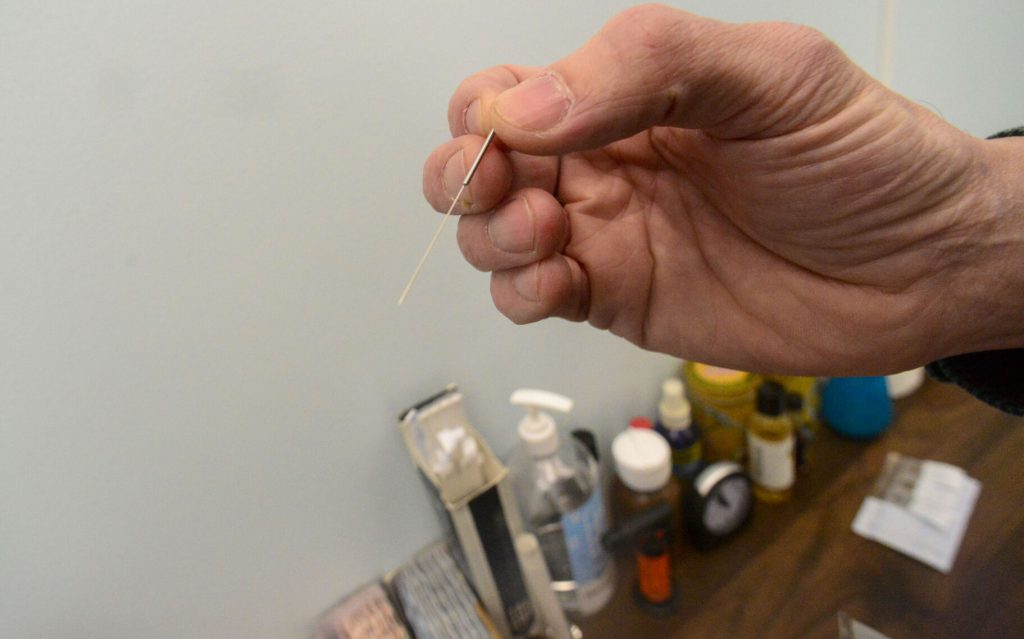
A little more than six years ago, Grace moved back to Vermont to be closer to family. He found space with the clinic in Brattleboro.
In his own venture, Grace has been able to grow his clientele. He said he’s putting in a lot more resources into advertising and regularly posting on social media.
“It’s definitely paying off,” he said. “I definitely have seen a pretty significant uptick in the number of new people coming through the door, especially in the fall. I was here spring and summer, and things were going pretty well. And then in the fall, things really took off for me so I’m hoping to continue that trend.”
Confluence Acupuncture has four rooms with equipment to accommodate different kinds of pain. The clinic is handicap accessible and Americans with Disabilities Act compliant, with wide hallways and doors to make navigation easier for people with wheelchairs and walkers.
One of Grace’s priorities for picking out a property had been physical accessibility. He also wanted to make the environment familiar to people, so the clinic has a similar style to a medical provider’s office.
“I think for some people, it’s a stretch to be coming to get acupuncture,” he said. “They’ve never tried it before. They don’t know what it is.”
Grace said he’s noticing an increasing number of doctors recommending acupuncture. Some patients have been going to the emergency room and taking painkillers but the pain subsists, while others have a chronic problem that no other medical care has successfully treated.
Needles used for acupuncture are “very tiny,” Grace said. He described the feeling of the prick as “a very minor insect sting when it first goes in, then after that, almost nothing.”
“Sometimes people feel like a little bit achy around the site of the insertion site or a traveling sensation,” he said. “But for the most part, you don’t feel much.”
An initial appointment is an evaluation lasting 15 minutes followed by treatment for one hour. Grace develops a plan, which usually includes about 10 treatments lasting an hour each and ideally occurring weekly.
“For the most part, the norm is that there’s a cumulative effect to it and it kind of stacks up week after week after week,” he said.
Treatments are $110 each and some insurance policies cover them.
Grace called Chinese medicine “the broader kind of umbrella of all of these different therapeutics.”
“Acupuncture is the one that’s become the most well-known in this country,” he said.
Grace said he might suggest exercises or a stretching regimen in a way that might be reminiscent of physical therapy. Manual therapy is somewhere in between physical therapy and massage therapy, and could include the use of cups.
In the clinic, many herbs are in jars on shelving. They can be used in “a variety of fashions,” Grace said.
More than 100 raw herbs are part of the collection. Grace said they’re the actual roots and barks of the herbs, which are prepared like tea in formulas he develops.
More than 100 granulated herbs also are in the collection. Grace said they “have already been cooked like a tea and then dried on to a powder substrate, which is mixed with water for drinking.”
Grace said patients have to be consistent with taking the herbs in order to see results. To make it easier, he offers for a staff member to make the formula and prepare it.
Six packs of jars holding herbal formulas can be picked up at the clinic then dropped off for refills. Patients are advised to drink one jar a day.
Grace has also started to teach gentle therapeutic exercises known as Qigong in his office at 9 a.m. Tuesdays.

Chris Mays is a reporter for the Brattleboro Reformer. He plays guitar in three groups and has a Yorkie named Lemon, who can be followed on Instagram at @lemon_the_yorkie. He enjoys spending time in the mountains.
